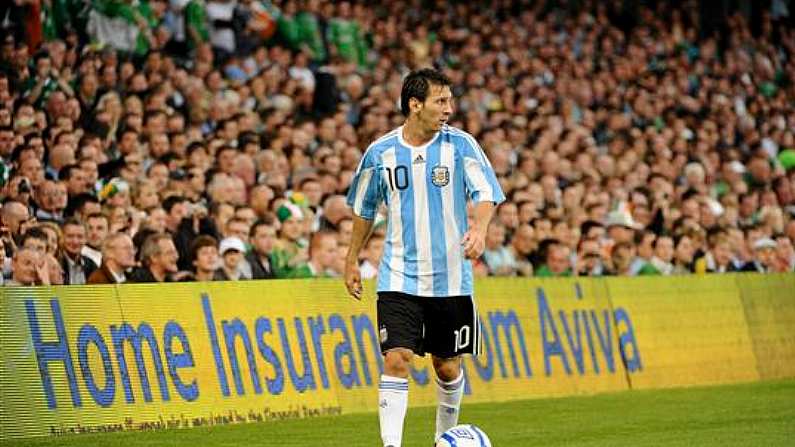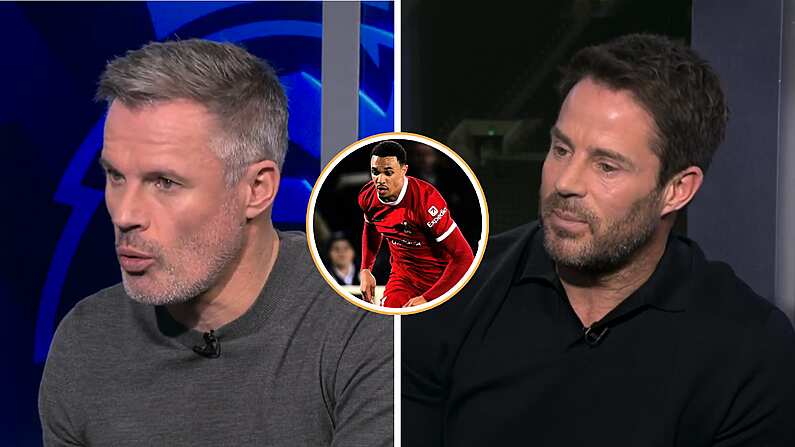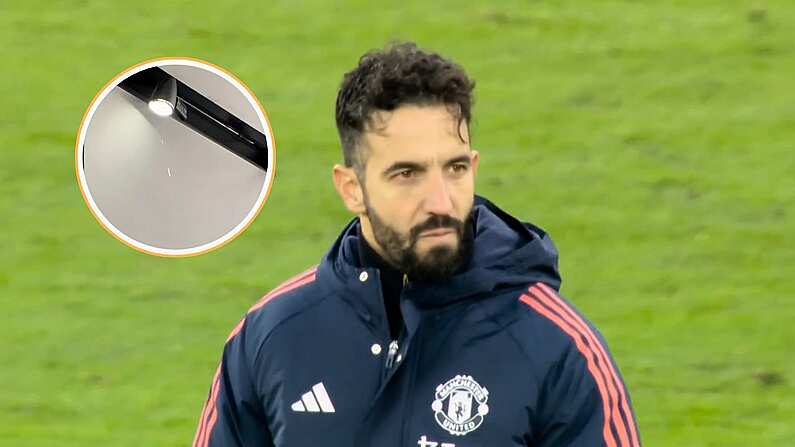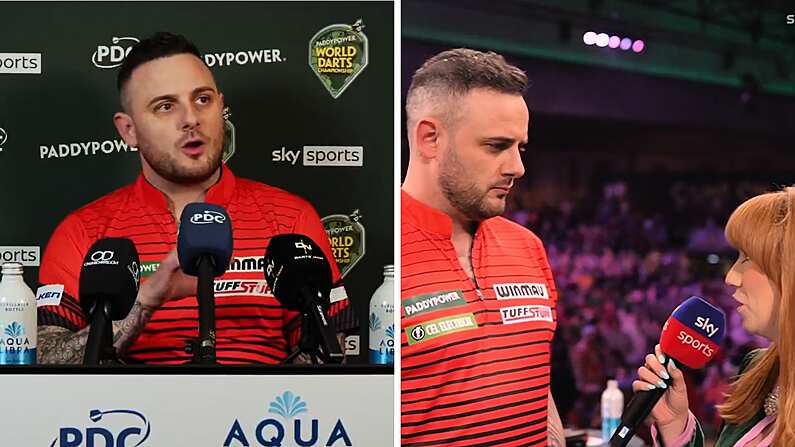Yesterday's revelations in The Sunday Times' highlighted the fact that football has a number of doping problems. The first is the fact the drugs exist in the sport. The second problem is one of attitude.
For years, a large portion of supporters have buried their heads in the sand regarding the fact that football likely had a doping problem. It was always highly improbable that the sport was untouched by the insidious act.
Firstly, football is the richest and biggest sport in the world: the idea that athletes would engage in systematic doping in a comparatively small sport like cycling while others would not seek to gain an advantage in football is absurd.
Secondly, it is easier to dope without being noticed in football. In individual sports, where progress and achievement can be exactly measured by timing, any sudden and unprecedented improvement in performance is bound to arouse immediate suspicion. In football, progress and success is far more intangiable and is much more difficult to measure, given the sheer number of variables.
Arsene Wenger has spoken openly of the fact that professional footballers take performance enhancing drugs. In 2013, he called for the introduction of blood testing to the sport:
Honestly, I don't think we do enough [on doping tests]. It is very difficult for me to believe that you have 740 players at the World Cup and you come out with zero problems. Mathematically, that happens every time. But statistically, even for social drugs, it looks like we would do better to go deeper.
I hope England is immune from doping but I don't know. When you have a doping control at Uefa [matches], they do not take blood, they take only urine. I have asked many times in Geneva [for that to be changed]. Sometimes, you have to wait for two hours after the game, so blood could also be a lot quicker.
I hope we do not have a big problem with doping but we have to try to find out and see how deep we can go into control. I would support blood testing. Uefa are ready to do it but it poses some ethical problems because everyone has to accept that they will check the blood and not everybody is ready to do that.
He duly got his wish, with blood tests introduced a couple of months later, and earlier this season Wenger saw Dinamo midfielder Arijan Ademi suspended for four years having failed a drugs test in the aftermath of his team's 2-1 win over Arsenal.
So why do people still choose to look the other way?
If football is clean, which I honestly believe it is, every club do a voluntary test Monday morning. Every player, every club. Simple.
— Stan Collymore ❤️🖤 (@StanCollymore) April 3, 2016
Often, the argument expounded by these people is that there no drug exists that can make you good at football.
It's true, there is no drug that will instantly improve your first-touch or your ability to jink around defenders. But there are plenty of drugs to make you better at football. A decent level footballer who is aerobically fit and rarely injured can make a lot of money by simply being fit, quick and reliable.
This all seems blatantly obvious, so why the continued ignorance?
Collymore is one of a vast number of people who are guilty of deifying football, by believing that it is a kind of glorious and pure human pursuit that is above all reproach. The game has become a vehicle to which folk can derive identity and meaning; football has, in many ways, replaced religion as the institution most worthy of people's feverish attention.
Football is so important in people's lives - it's just so bloody good - that it's difficult to admit the role that science plays in creating the spectacle.
This is best embodied by Lionel Messi. Watching him is as close to a transcendental sporting experience as there is; his reduction of the extraordinary to the mere routine is bewildering. There is no player who currently embodies football's potential than Messi.
Yet his career carries with it quite a heavy caveat. As a youth, Messi was diagnosed with Growth Hormone Disorder. He failed to grow beyond a diminutive 4' 2", and Barcelona administered him Human Growth Hormone (HGH) to aid his development. HGH is a performance enhancing drug, it is on WADA's banned list and was one of the drugs Lance Armstrong was found guilty of taking.
To be absolutely clear, this is not to say that Messi is guilty of doping. He has not been found guilty as having used HGH to enhance his performance. The doctor who treated him, Dr. Diego Schwarsztein, issued the following statement to Guillem Balague for his book Messi in 2013:
The growth hormone has been used as a supplement by adults who do not need it, with the objective of gaining a sporting advantage. But you have to differentiate between growth hormone treatment for an adult who doesn’t need it, who is looking for a physical benefit – and they are high doses and can have very negative side-effects – and the treatment of a physical deficiency in a young boy.
Messi was a prodigious talent but doctors predicted he would not grow beyond 4'7". Here he is again to Balague:
When I was 11 years old they discovered that I had a growth hormone deficiency and I had to start a treatment to help me to grow. Every night I had to stick a needle into my legs, night after night after night, every day of the week, and this over a period of three years.”
“I was so small, they said that when I went onto the pitch, or when I went to school, I was always the smallest of all. It was like this until I finished the treatment and I then started to grow properly”
Messi ended up at Barcelona once they offered to pay for his treatment.
The fact Messi ceased to use it as an adult, and the fact that it was prescribed and overseen by physicians to treat a medical condition means it is treated as a Theraputic Use Exemption (TUE), which means it is not treated as performance-enhancing. It is the same principle of an asthmatic athlete being allowed to use an inhaler.
Yet Messi - football's brightest star - would not be dazzling the world had it not been for the administering of HGH to him as a child. While it is not deemed performance-enhancing, it is very difficult to imagine Messi becoming the greatest football ever without those years of injections.
This is a very grubby thing to face, the fact that football's most natural talent has been allowed blossom thanks in part to something artificial. But Messi's rise shows the pursuit of football greatness is as influenced by doctors and medics as any other sport. HGH did not make Messi good at football. But it helped him become a professional footballer.
This fact that players may deliberately improve their performance through nefarious and explicitly illegal methods is a difficult one to face up to for many fans, but we may have to face up to it soon. Because at the moment, it appears many believe ignorance to be a superior kind of knowledge.
See Also: Irish Doctor At Centre Of Doping Scandal Responds To Allegations In Sunday Times











